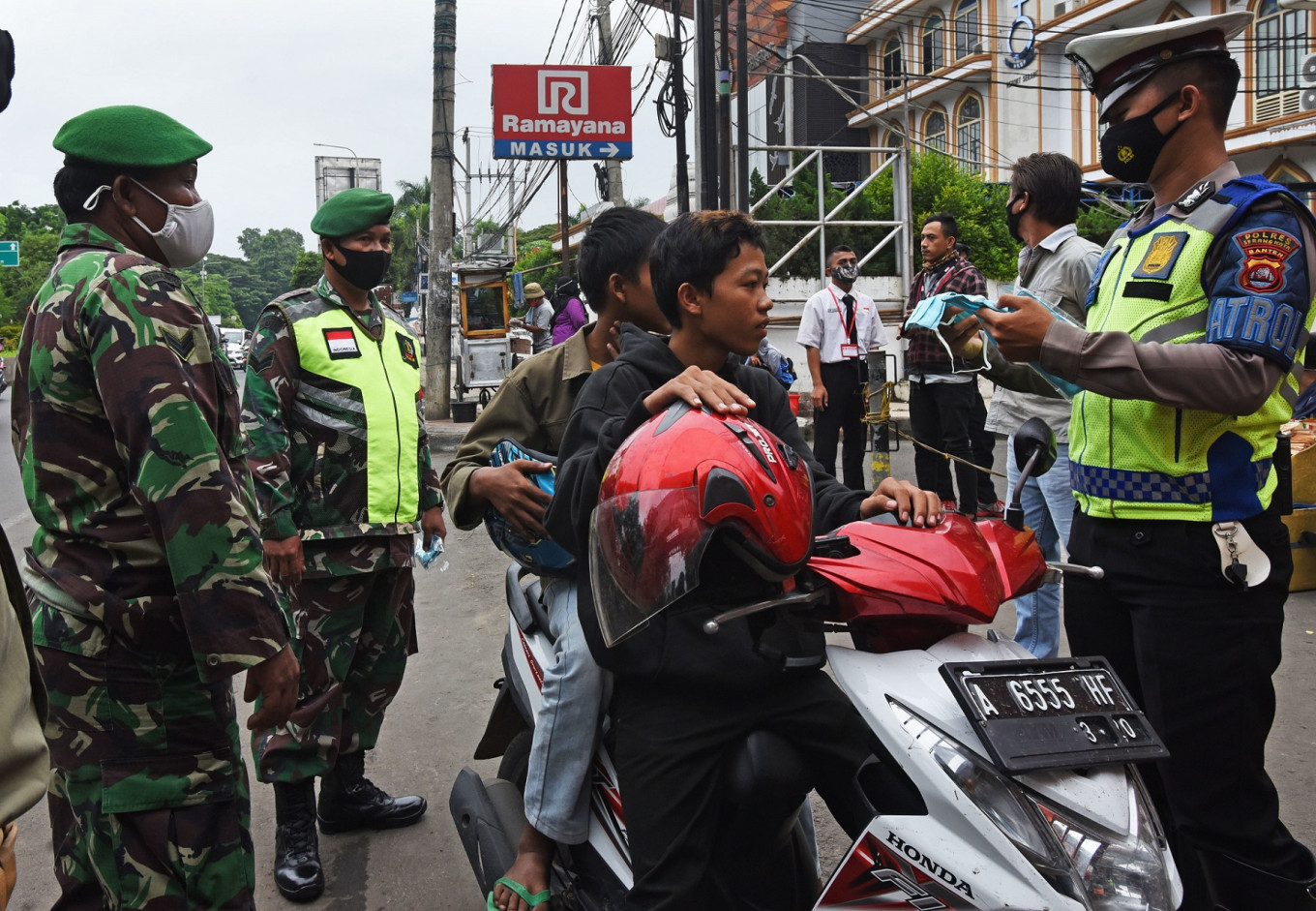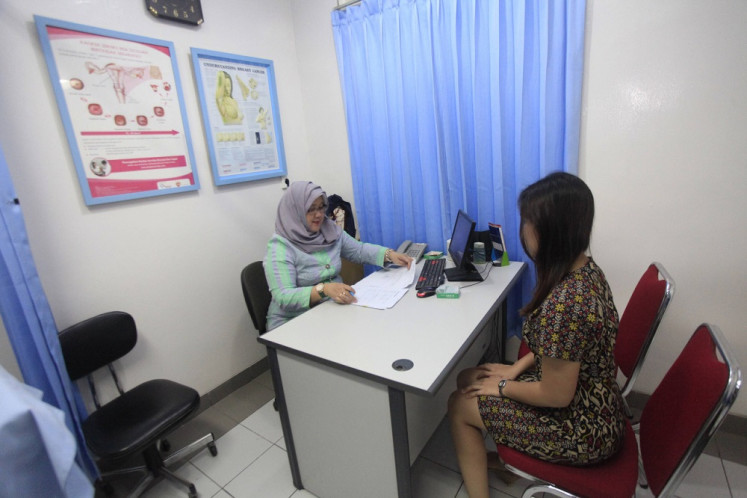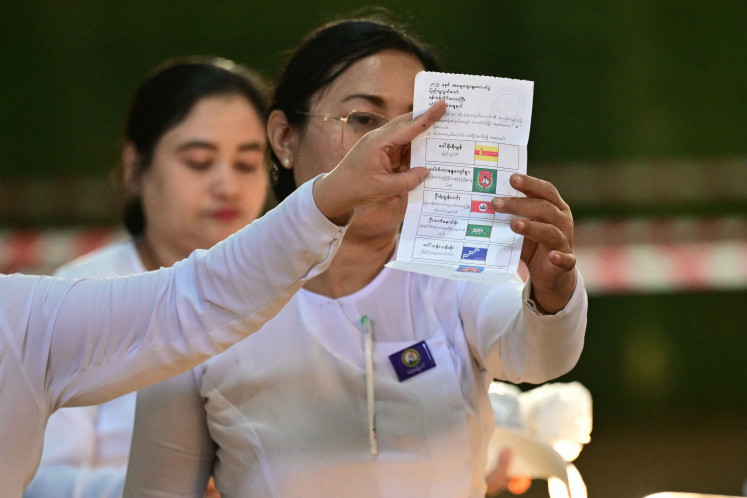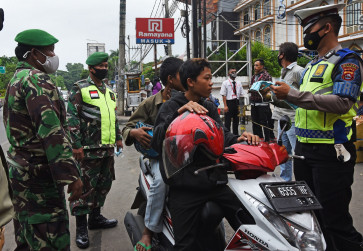Popular Reads
Top Results
Can't find what you're looking for?
View all search resultsPopular Reads
Top Results
Can't find what you're looking for?
View all search resultsWhy securitization of COVID-19 response sets dangerous precedent
There were at least 1,096 reports of non-compliance with health protocols despite the deployment of security officers.
Change text size
Gift Premium Articles
to Anyone
 Serang Police officers and military personnel from the 0602/Serang military district command (Kodim) apprehend a health protocol violator in Serang, Banten on Feb. 16, 2021. The government decided to deploy police and military personnel to assist with COVID-19 contact tracing efforts and health protocol enforcement in seven provinces in Java and Bali. (Antara/Asep Fathulrahman)
Serang Police officers and military personnel from the 0602/Serang military district command (Kodim) apprehend a health protocol violator in Serang, Banten on Feb. 16, 2021. The government decided to deploy police and military personnel to assist with COVID-19 contact tracing efforts and health protocol enforcement in seven provinces in Java and Bali. (Antara/Asep Fathulrahman)
A
lthough Indonesia has now achieved a significant decrease in daily cases from COVID-19, some ways to control the spread of the coronavirus have exacerbated the negative impacts on vulnerable communities. These include a securitization approach in handling the public health crisis.
While the deployment of military, police and other security forces is common in disaster response, the forces are heavily involved in responding to the COVID-19 pandemic in the country. Instead of appointing the health authority as the lead, some of them are assigned at the top policy-making level in the national COVID-19 task force, under the two main legal bases of COVID-19 response: Presidential Decree No. 7/2020 and its amendment, No. 9/2020.
Both regulations mandate the National Disaster Mitigation Agency (BNPB), which mainly comprises military personnel, to lead the national COVID-19 task force.
To date, there are at least 16 emergency regulations appointing the security forces to high-level decision-making positions. Notably, the chief executive along with the vice-chair of the first COVID-19 task force are from the nation's military bodies, while other high-level positions are filled by national police and other security bodies’ representatives. Within the latest structure, the secretary-general of the Health Ministry is only appointed the vice executive of the task force rather than the chief executive.
The outcome of these emergency regulations is the domination of the national defense, military and police agencies in response to a public health emergency. This is an uncommon approach considering that the Health Ministry is constitutionally mandated to respond to any infectious disease events. Importantly, health authorities are the most capable and experienced body in tackling public health crises.
In many countries, health authorities are the leading sector in responding to the pandemic, while the military, police and other security forces play a complementary role.
The security forces-dominated composition characterizing the response in Indonesia has shaped the direction of the emergency response into a heavily securitized approach, leaving public health elements and principles behind, and putting individuals’ rights to health at stake. For example, military forces play a massive role in vaccine rollout and distribution but at the same time, many people cannot access the vaccine at the local health facility due to its lack of vaccine supplies.

















